Falmouth Docks
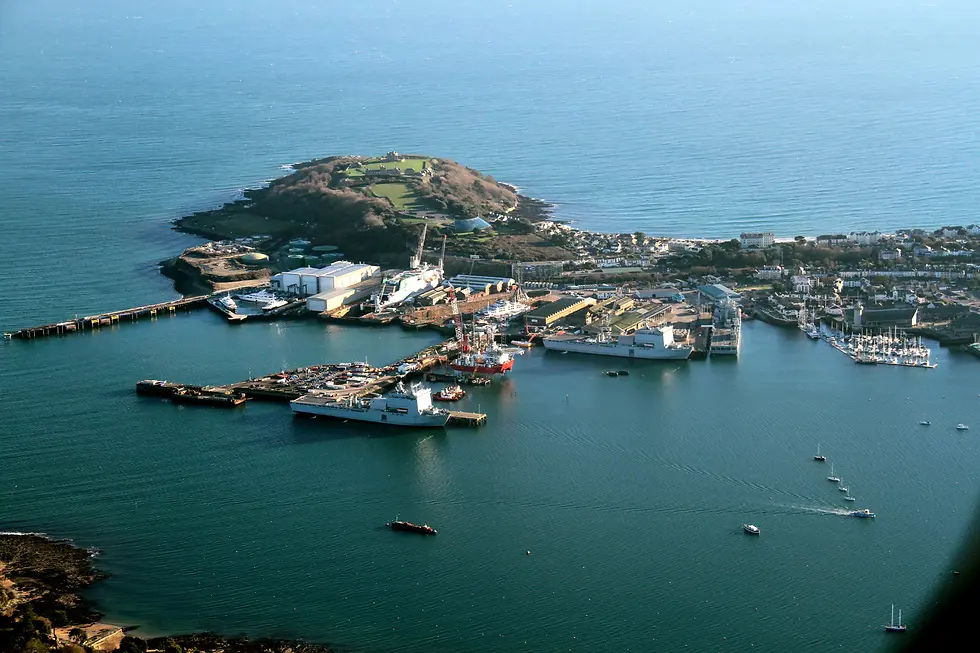
CMS GeoScience operates far and wide, but this was a great opportunity to work on an exciting maritime development much closer to home here in Falmouth.
Working in conjunction with A&P Falmouth, part of the APCL Group, and Geotechnical Engineering Ltd, CMS GeoScience carried out a successful geotechnical survey within Falmouth Docks as part of the initial stages of a regeneration project. Our experienced geotechnical team were able to collect 26 vibrocores for archaeological and MMO analysis.
The challenges associated with this project were demanding but proved to be an opportunity to put our robust and proven geotechnical systems to the test, resulting in a productive campaign for all involved.
The Convex Seascape Survey
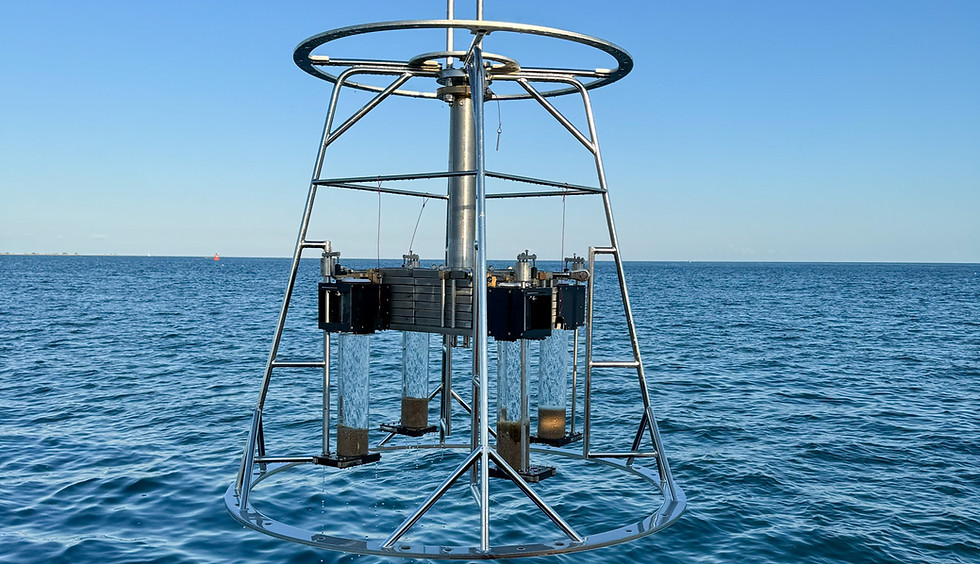
CMS GeoScience partnered with the University of Exeter to work on The Convex Seascape Survey.
This exciting initiative is a pioneering collaboration of world-leading scientists, working to quantify and understand blue carbon stored in the coastal ocean floor and the effects of marine life upon it.
The role of our specialised geotechnical team was to collect 55 vibrocores and 8 multicores across various locations in the waters around Jersey.
Demanding environmental, geological and weather factors presented a specific challenge to the team, with rocky outcrops exposed by the high tidal range. Extensive planning using tidal and weather forecasts, as well as water depths, enabled the team to maximise working windows and complete work safely.
We are proud to have played our part in helping researchers highlight the need to preserve integral marine habitats.
How CMS GeoScience overcomes the challenges of working in busy ports
CMS GeoScience is proud to announce the recent work we completed as part of the expansion of one of the UK’s busiest container terminals, DP World London Gateway.
We undertook a geotechnical survey for the Port of London Authority (PLA) and DP World London Gateway. Work was carried out across three days last month on the project's Berths 5 and 6 to acquire essential environmental and geotechnical data for regulatory compliance and project design.
“The Port Of London Hydrographic Service chartered CMS Geoscience‘s MV Flatholm as a turn-key solution platform to complete a coring and sampling campaign at 21 sites for our client at London Gateway, Thameshaven,” said Jim Powell, Hydrographic Operations Manager at PLA.
The nature and location of the site meant several logistical and safety challenges needed to be overcome. Tide and weather played a big part. Specific time constraints meant the job had a specific window and a tight deadline.
The survey site was located directly opposite Berth 4, an active and busy container terminal. Our team had to operate with strict adherence to PLA navigational controls and exclusion zones, while continuously coordinating with the port’s vessel traffic services. The PLA supported our work with planned vessel movements to allow team to work around marine traffic.
It was essential to design a sampling campaign that could accurately delineate potential hotspots for regulatory bodies. To add to this, the survey had to account for the potential of residual UXO, and strict adherence to our UXO encounter procedures onboard.
This dynamic and high-risk environment demanded not just technical expertise, but a strong commitment to operational safety.
Our team, operating from the MV Flatholm, executed a meticulously planned vibrocore sampling campaign over three days. We acquired 21 vibrocore samples and 21 surface grab samples, as well as over 160 sets of sub samples, gathering the necessary geotechnical and environmental data to inform the project.
As with every project we work on at CMS GeoScience, the work was carried out with exacting precision, with every sample handled under rigorous protocols, fully documented, and stored in line with MMO/CEFAS standards. Our daily chain-of-custody transfer ensured the integrity of every single sub-sample.
We maintained continuous communication with port operations, navigating the heavy marine traffic and tidal constraints with seamless coordination. Working closely with the PLA ensured that all project objectives were met safely and efficiently.
We also worked with the PLA on logistics to arrange moorings, the collection of sample containers, the delivery of samples each day, adherence to chain of custody, so a big thanks goes to them.
“Throughout, CMS were flexible and adaptable to changing weather windows enabling a timely mobilisation to the Thames within a narrow weather window to execute the works on time and to budget,” added Jim Powell.
“Great collaborative attitude from the office and field teams made for a smooth operation and we look forward to working with you again in the future.”
We’re happy to report that the project was a success. We acquired all vibrocore samples and grab samples across Berths 5 and 6. This data will be critical in ensuring compliance with both PLA and MMO regulations, providing the assurance needed for the client’s project to move forward.
We were able to adjust our schedule to complete work at the critical time. We managed to mitigate downtime by working with the PLA to ensure vessel time was optimised, which also reduced costs.
Most importantly, the entire operation was completed incident-free, testament to our team’s ability to deliver crucial data with the highest standards of safety, professionalism, and integrity, even in challenging marine environments.
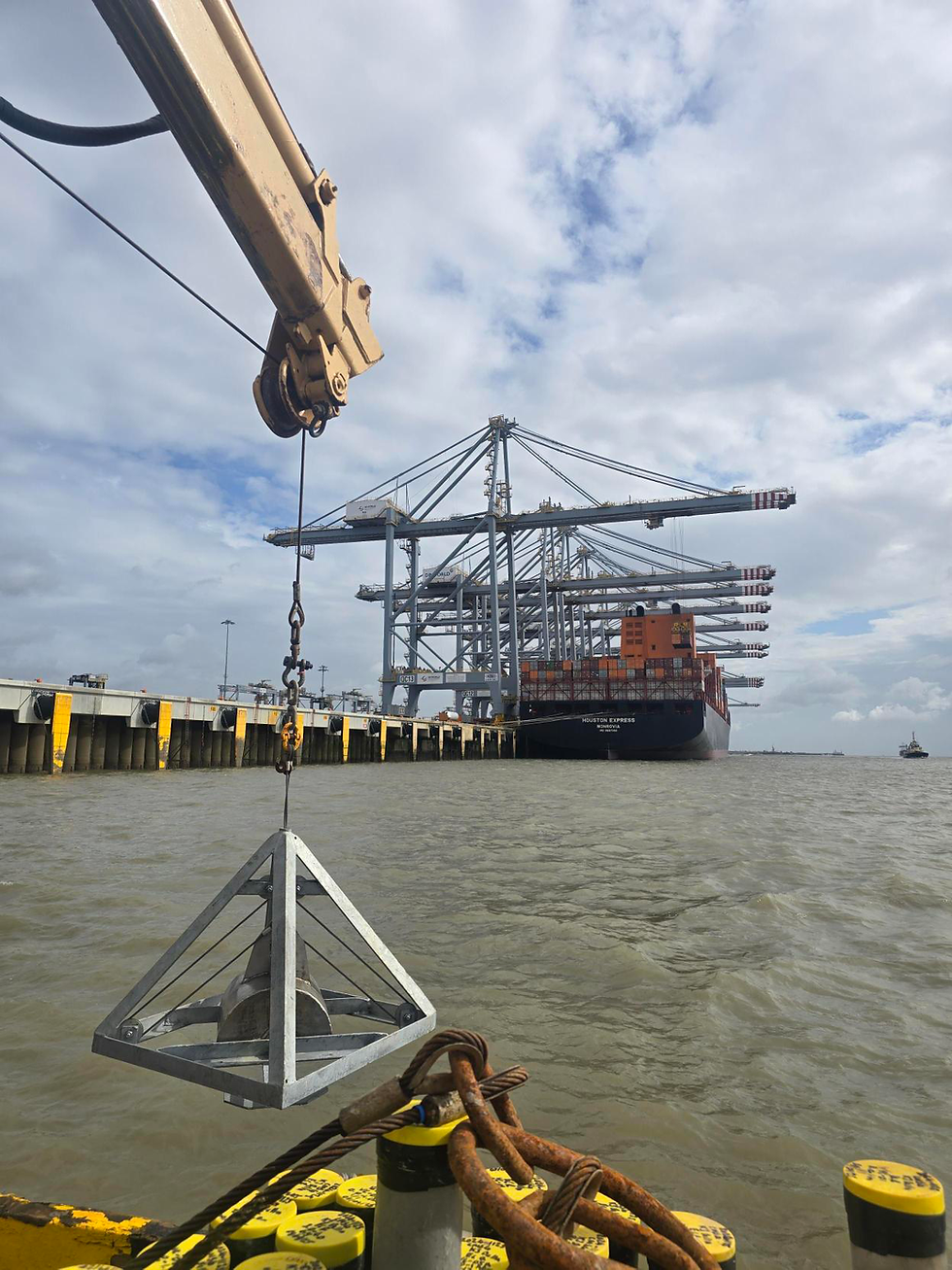.png)
.png)
.jpg)

Where CMS GeoScience operates:
Explore Our Projects
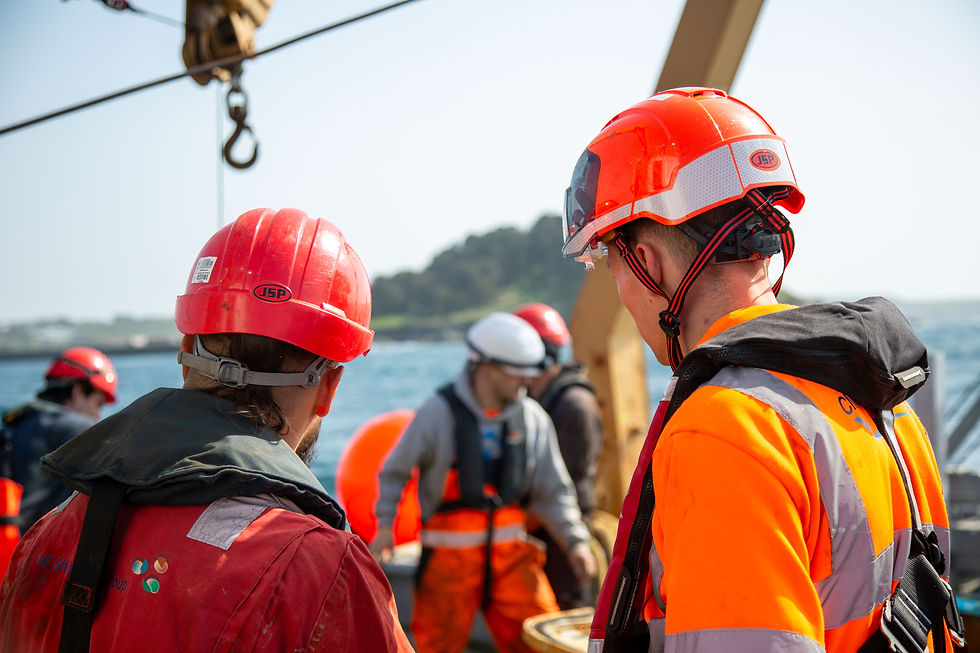

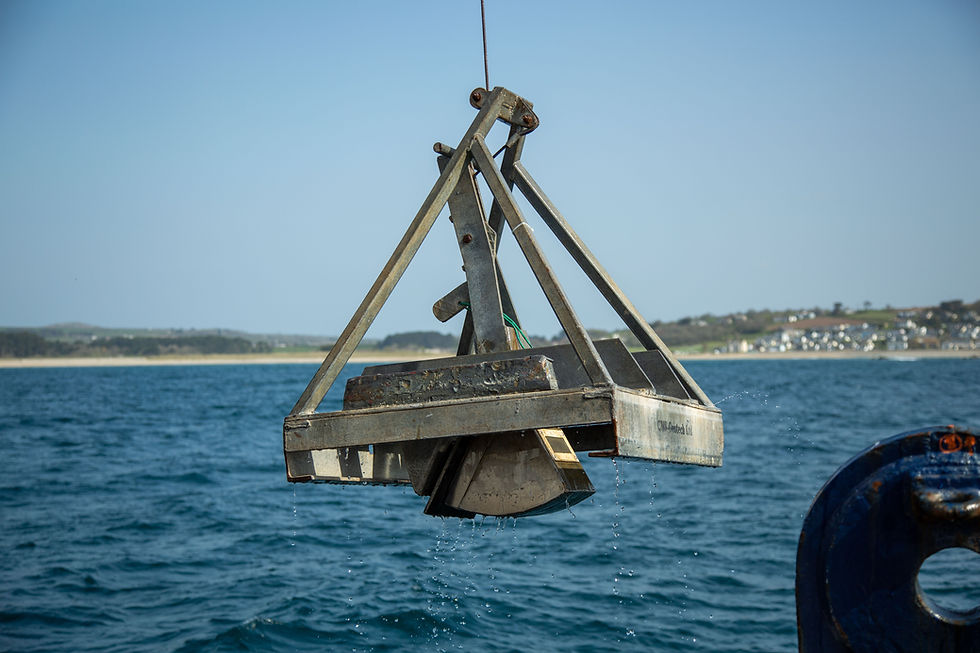





Large-scale benthic survey for East Channel Association (ECA)

CMS GeoScience successfully completed an important and challenging benthic survey job off the South Coast for the East Channel Association (ECA), forming part of the wider Regional Seabed Monitoring Program (RSMP).
“Winning this job and successfully undertaking the grab sampling in a timely manner is an excellent achievement for CMS GeoScience,” said company MD, Dave Hitchcock. “We are delighted with the hard work our team put in to successfully sample 621 stations without any failed attempts to get the job done in under two weeks.”
CMS GeoScience deployed two 0.1m² Hamon grabs, a purpose-built Mega Grab and DDV to obtain seabed sediment and benthic infauna samples across the array. The samples collected will undergo particle size and macro faunal analysis to assess the seabed and inform future operations.
This particular site, out in the Eastern Channel, meant working within the busy TSS, hard ground conditions and an exposed seabed in an area heavily impacted by weather. This contributed to a challenging but rewarding job for our team. A key aspect of this job was that sampling needed to be completed early in the year to allow ample time for laboratory analyses and reporting.
Our success came down to a coordinated effort of all crew and personnel working 24-hour operations aboard our vessel, MV FlatHolm, supported by a dedicated chef to ensure the comfort and wellbeing of the whole team day and night.
Following demobilisation, MV FlatHolm is remobilising straight away for multiple 24-hour geophysical surveys that will run for the duration of May and into June. These jobs involve the use of multibeam echosounders (MBES), sidescan sonar, magnetometer and boomer surveys.
The successful completion of this project proves our continued capability to perform large-scale, 24-hour grab sampling operations in challenging environments and collect high-quality, reliable data that is delivered safely, ahead of time, and to budget.
CMS GeoScience’s survey solutions go beyond simple data collection. Our rigorous and safety-first operations, reliable in-house team and bespoke kit provide accurate and cost-effective survey solutions for any job you may require.
The Dublin Array Offshore Wind Farm Project, RWE Renewables
CMS GeoScience successfully carried out site investigation surveys for RWE Renewables UK at their proposed offshore wind farm site on Bray Bank and Kish Bank off the coast of Dublin, Ireland.
We performed a suite of geotechnical tests to gather data to inform the development of the site.
When complete, the Dublin Array will comprise of between 39 and 50 wind turbines, power over 770,000 Irish homes and reduce Ireland’s carbon emissions by ~1.5 million tonnes annually.
CMS GeoScience completed the project on time, meeting all the key milestones and avoided any health & safety issues and technical downtime.

